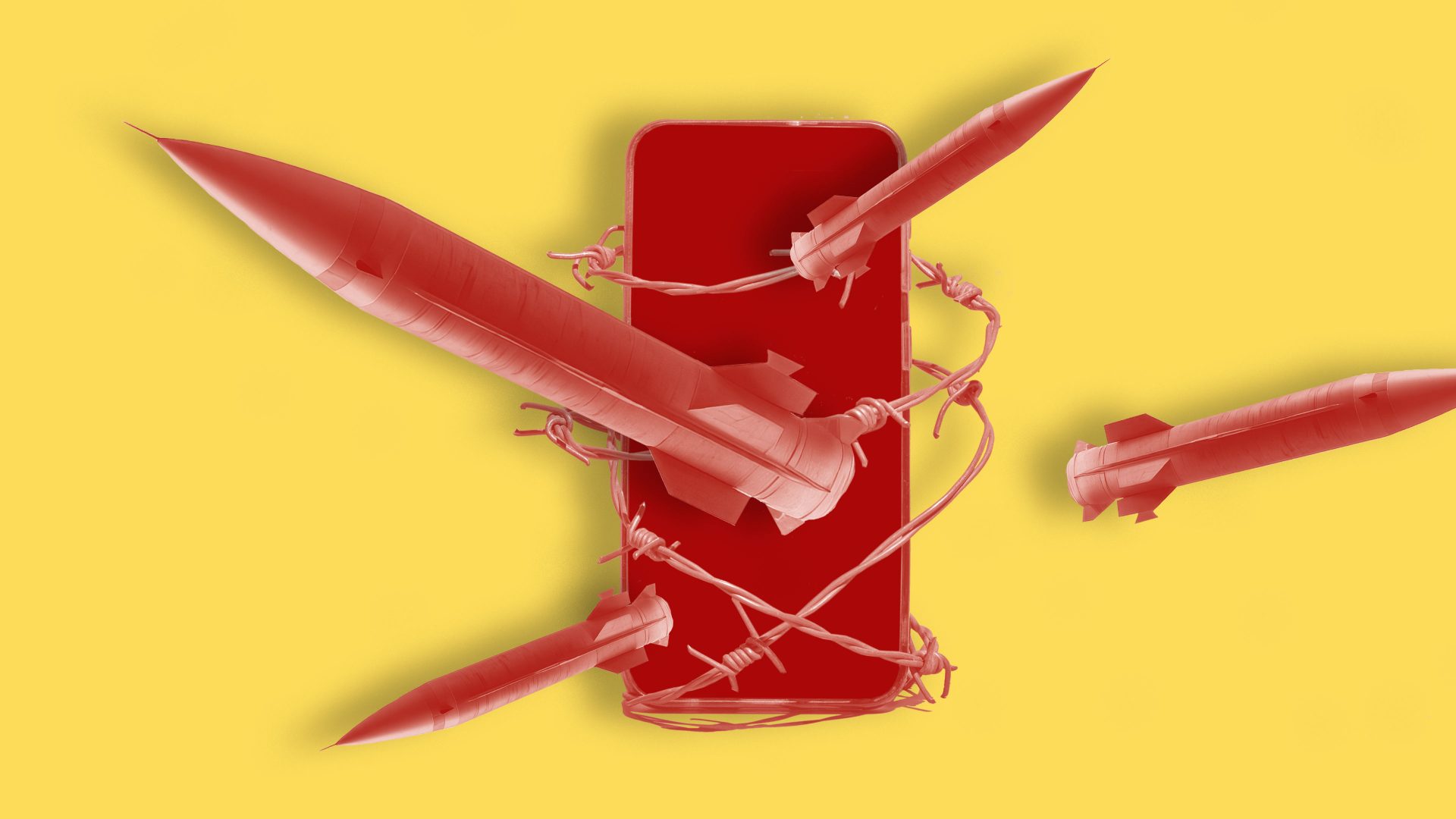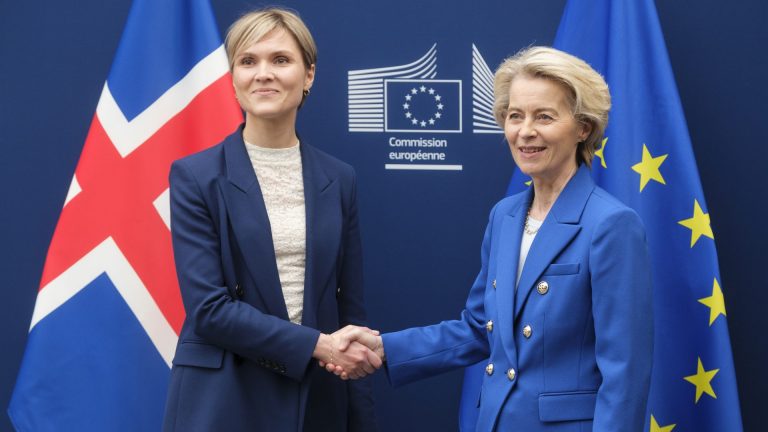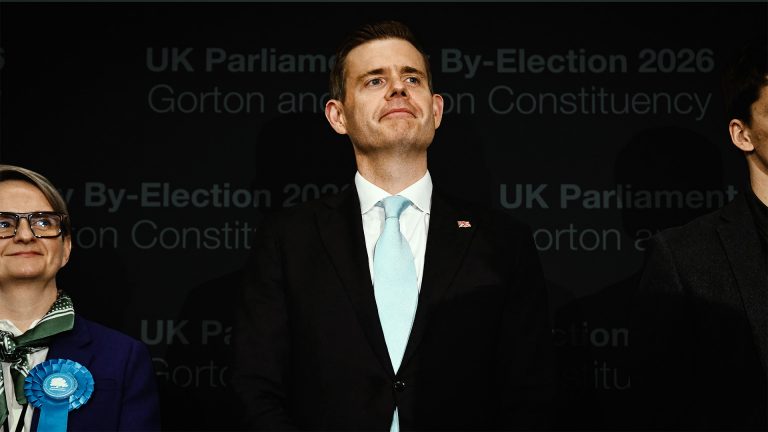The Twitter account belonging to America’s embassy in Brussels might only have 26,000 followers, but it’s giving European security officials a bit of a headache.
Over the past couple of months, the account has taken aim at the EU’s attempts to tackle disinformation on social media platforms. The US, of course, is framing European efforts to fact check as some kind of assault on free speech. A recent post, for example, stated: “We must dismantle the fact-checking industrial complex that censors opinions unpopular with global elites.”
So far, so Trump. But recently, the US focus has shifted, suggesting that Europe’s interest in cleaning the internet of bullshit is a direct attack on American business and could hinder economic cooperation between the two economic giants. Here are two recent examples.
The first: “When foreign entities take actions against Americans for free speech, that becomes more than an irritant. It becomes an impediment to cooperation.”
The second: “The ‘disinformation industry’ is a scam to monitor, censor, and demonetize Americans.”
What is going on here? The EU is taking a considerably tougher approach to regulation of new technologies than the US. In particular, the Digital Services Act gives Brussels the power to penalise companies whose products or platforms spread disinformation in Europe. The platforms this might apply to are primarily run by American companies.
However, as with all things EU, whether or not they use this power will come down to a political calculation over whether it wants to pick a fight with the US.
So, when you consider that the EU wants to be the global leader in regulating all new technology, the motivation for the US to put pressure on Brussels becomes pretty obvious. That, at least, is what European tech industry insiders say: anything that can be used to pressure Brussels to stop discriminating against US companies, as they see it, is worth it.
Suggested Reading


Donald Trump’s digital landgrab
Why does this matter? Europe is currently under attack from adversaries in the information space. Russia and China are the most notable culprits of this disinformation war. If the US attacks Europe’s ability to challenge and counter this disinformation, its enemies will be more than willing to take advantage.
“We have to think of the information space as part of the battle for soft power,” says Dominic Saari from the University of Jyväskylä. “If we leave a soft power vacuum, China and Russia will be happy to fill it.”
Saari says that Europe is engaged in “cognitive warfare” with anti-Western nations who use a variety of tactics, like disinformation and fake news that undermines or undercuts Western values. The aim? To “manipulate our thought process on multiple fronts until our worldviews are challenged or changed, against Western democracy.”
If that sounds dramatic, here’s what a senior western security official makes of the Trump administration’s ongoing campaign against European fact checkers and regulators:
“They are targeting our approach on defending our democracies. They have dismantled their own defences in the information space, and now expect us to get crazy and naked too. And boy, we do not have that much clothing to begin with.”
This might all sound a little hypothetical. Why should we care about China or Russia spreading anti-Western propaganda online and what practical impact does it really have on Europeans?
Russia has directly used disinformation campaigns and hybrid tactics to undermine European and Nato efforts to support Ukraine. A quick search on the “EUvsDisinfo” database from the past few months and you’ll see all manner of nonsense pushed out by propaganda sources, attempting to paint Russia as some kind of victim, being bullied by the EU and the UK.
Suggested Reading


Trump and Putin, the accidental founders of modern Europe
Highlights include: the EU and British government are plotting to sabotage talks between Russia and the US; Nato is using the war in Ukraine as a proxy to dominate Russia; Russia is backed by a global majority; Nato would bomb Russia if it wasn’t a nuclear power. It goes on and on.
This kind of rubbish is designed to sow doubt in the minds of European citizens and politicians, so that they think twice before sending Ukraine a new batch of missiles or committing to increase their own defence spending at a Nato summit.
It’s worth noting that EUvsDisinfo, which is part of the EU’s diplomatic service, is exactly the kind of project that the Trump administration takes issue with: a web service that examines disinformation cases, lists them in a database, cites their origin and counters their lies.
Pekka Kallioniemi, a social media influencer and computer scientist who runs the popular anti-Russian propaganda campaign Vatnik Soup, sees Trump and the Maga movement’s hostility to Europe as beneficial to Russia.
“When American politicians promote conspiracy theories or send mixed messages – especially about support for Ukraine – it gives countries like Russia more chances to spread their own propaganda,” he says.
“Since 2015, Russia has also worked alongside the Maga movement in the US as part of its wider information war. What’s even more concerning is that we are now seeing a situation few thought possible just a few years ago: Russia and parts of the US political system are now effectively aligned in an information war against Europe.”
As ever with Trump, no one knows if this is deliberate or a result of his own ignorance. Regardless of his intention, the threat to Europe already exists and could easily get worse. Russia and China do not need any further invitation to undermine a continent that is urgently trying to address its own security concerns.
Between agreeing to spend more on defence, sending weapons to Ukraine and tackling the reliance on China, Europe has an expensive, difficult job on its hands in the coming decade. It will need the public’s consents. And if you are sitting in Moscow or Beijing, a cognitive war that turns citizens against their own governments might seem the best option to counter a resurgent Europe.










